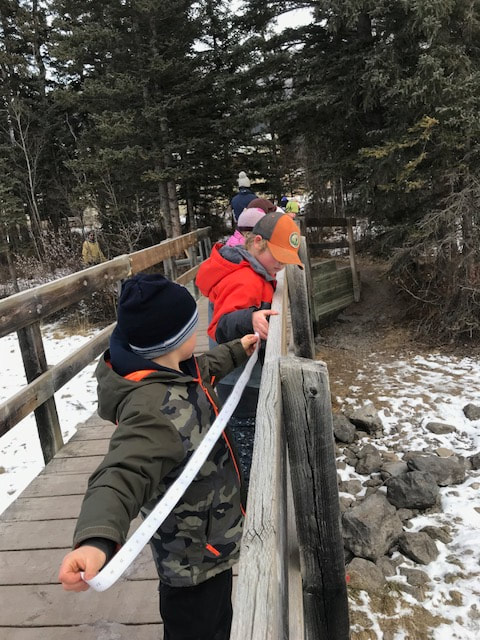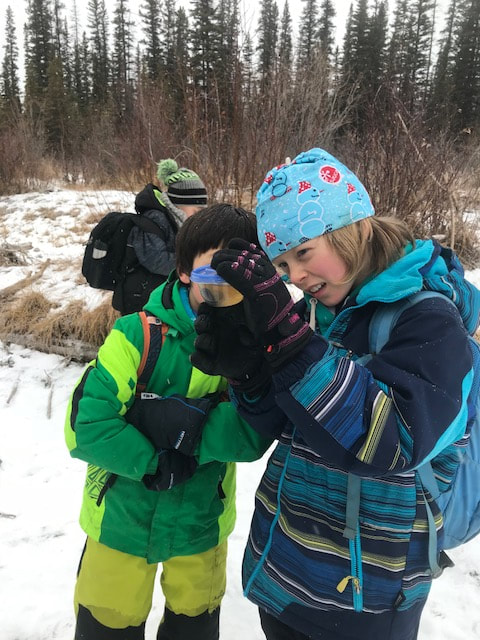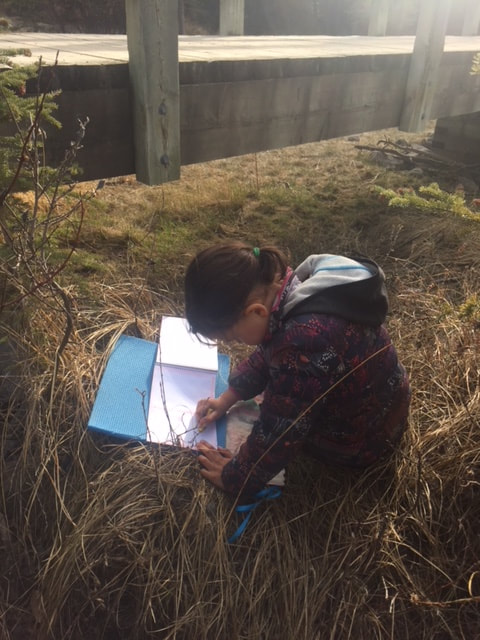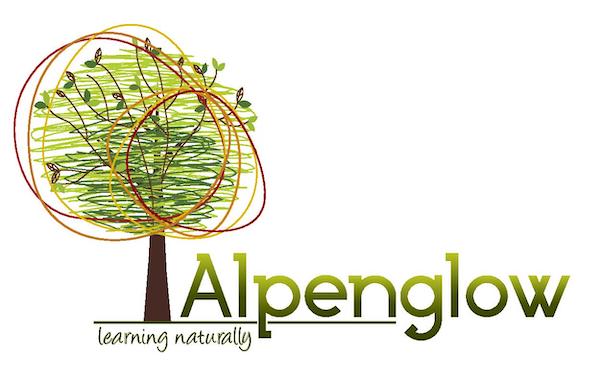Alpenglow School
|
written by Andrea Barnes, Nature Immersion Specialist at Alpenglow School The month of November started with a Grade 1/2 adventure in the Alpenglow Forest. They continued their work exploring sound by creating their very own ‘sound maps’ in their nature journals. This is a tricky concept for most but these kiddos enjoyed their solo time in the forest and produced amazing little maps. The Grade 2 class then joined me, while the Grade 1’s continued working on creating colour with Ms.Chandi. The 2’s were studying magnets in science, so I told a story about a boy who discovered magical rocks in nature that helped find directions. This was the start of my learning for the day - recognizing the disconnect between how you imagine something versus its reality (kind of like trying to duplicate a pinterest recipe). I had pre-magnetized various objects and gave the children the task of creating their very own natural compasses (as was done in the story) and to float their magical metal pieces on leaves in the last remaining puddle of water in the back pond. I imagined all their little leaves floating and slowly spinning towards north (with great ooo’s and ahhh’s from the children, of course). Then, we’d pull out our compasses to check our work and photo document our little experiment to share with parents. It was going to be great! However...in reality, the creation of these compasses was a wee flop. The leaves (given it was November) didn’t float very well and the magnetized metal pieces easily fell off. This wouldn’t have been a problem if the experiment was done in bowls of water but the compass pieces were quickly lost at the bottom of the murky pond water. This led to much disappointment from the crowd and the allure of the ice forming on parts of the puddle, which desperately needed to be broken, was way more exciting then my lesson. Recognizing my failure, I harnessed their energy and tried to salvage the learning with a nature game in the woods. We all learn, particularly when we try new things! :0)
The learning continued, as the Grade 3/4 class set out to explore the rocks in our area, as they were completing that unit. They first built sedimentary rocks using their bodies and we did what they most love at this developmental stage - we made a ‘dog pile’, this allowed them to actually feel the pressure needed to create rocks and thankfully there wasn’t any dramatic folding or faulting. Then, they used their senses to identify rocks (similar to the grade 3’s last month), but this time we learned that when it’s cold and wet the limestone doesn’t respond as we expected. We then walked to the river on Larch Island to do an erosion experiment to help us better understand the power of water. We’re all learning and getting better acquainted to this extended section of our schoolyard classroom, we’re so lucky to be so close to this trail system. The Grade 2/3 class were fully immersed in their math main lesson block so we seized the day and explored math outside all morning. It was a chilly day but we adapted by ‘adding’ a wee play at Lions Park and a brief warm-up inside. The class participated in active math stations which had them measuring, making patterns, counting in different ways, and finding numbers and shapes in nature. The best part of the day was their excitement in individually measuring everything they could, including one of the school bridges (which we learned is 32 m long, in case you were wondering). They ended their day by setting up a research plot so they could measure the snowfall this winter and hopefully, the depth of the water once spring is upon us... that’s if the post stays in the ground that long...more learning. With much gratitude I learn alongside these fantastic children! |
Nature-Based Learning is a main pillar of learning at Alpenglow SchoolFollow our students and teachers as they take their classrooms outside to explore, connect and learn in our own natural environment. Archives
December 2019
Categories |



 RSS Feed
RSS Feed
